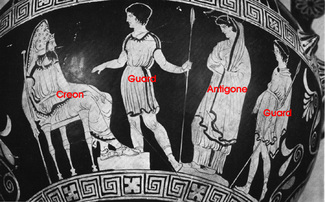 The tragedy of Antigone can teach readers to get things right the first time before it is too late to fix it. In this story, when Antigone illegally buried a dead body, Kreon wanted her to be killed. He did not like the idea of anyone breaking the law, even if it was the right thing to do. In pages 35 and 36, Kreon's son Haimon tried to convince his father that he was wrong, and Antigone only did what was right. He believed she should not be punished. Kreon did not agree with his son, and they were mad at each other. However, eventually, on page 64, Kreon realized he was wrong, and tried to save the girl. He was too late though, for she had hung herself. Haimon was devastated with Antigone's death and tried to kill his own father, but then missed and killed himself instead of trying again. If Kreon would have listened to what people were trying to tell him, that punishing Antigone was wrong, then he could have had it right the first time and not have had to deal with yet another death in his family. However, he really was too late, and had to face the death of his son, which even lead to the death of his wife, who hung herself, like Antigone. This can be a tragedy that people learn from. People can learn that if many people are telling them that something is wrong, and they can kind of tell that it might be wrong too, they should make sure to not make the mistake of going through with whatever it is that people are telling them not to do. Otherwise there might be too late.
0 Comments
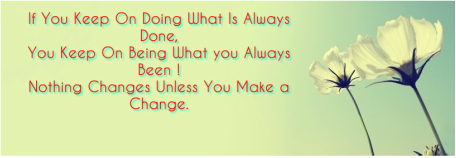 In order to achieve something, you have to do something yourself to do it. You can not just sit there and let someone else do it for you, because then it would not be your achievement, it would belong to the person who actually worked for it. This is kind of what Frank Kafka was trying to say when he wrote "Before the Law". In that story, there is a man who wants to go through a gate, but there is a door keeper that will not let him go through. "He decides that it is better to wait until he gets permission to enter." (Kafka) Instead of doing something about the doorkeeper not letting him in, he just sits there, patiently waiting to be let in. "There he sits for days and years." (Kafka) He waited until it was time for him to die of old age, and he still never got to go in the room, because the doorkeeper closed the gate. Basically, the man waited his whole life for nothing. So, what Kafka is trying to say here, is that you should not waste your life waiting for something to happen. It is a tragic mistake that can easily be prevented. All that has to be done is to make the necessary changes to accomplish what you want to. 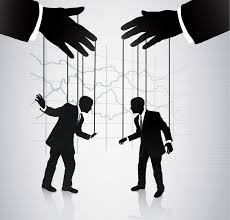 When it comes to making decisions, there are many things affecting what people decide to do. Those factors that lead us to make the decisions we do have more of an effect on us than we would usually think. People usually tend to choose the option that seems more simple and what seems better. That is why when people advertise things, they do it a certain way. They advertise things in a way that will influence the decision making of the audience. Dan Ariely proves this in his TED Talk, "Are we in control of our own decisions?". He shows a website with three different options for purchasing subscriptions. There was the option for an Economist.com subscription for $59.00, a print subscription for $125.00, and an option for both of those for the price of $125.00. According to Dan Ariely, most people would choose the third option because it seemed like a better deal. No one wanted the middle option, since it seemed useless. When the middle option was eliminated, the first option suddenly became more popular than the combo deal. This is because the middle option was not there to make the combo deal seem better than it really was. So sometimes people can trick others into thinking something might be useful, when it is really not useful at all. The scary thing about this, is that a lot of the time, people are manipulating us into making the decisions that we make. Most of the time we make our decisions, we are not really doing it ourselves. Others are putting an influence on us to make us choose to do what we do. It is definitely not always the case, but a lot of the time it is. 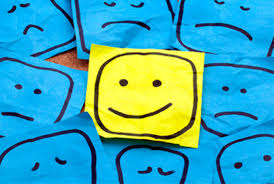 Tragedy is something that people usually see as pure sadness and misfortune. However, there is some good that comes with unfortunate events. This is something that Joseph Krutch mentions in The Tragic Fallacy. "We accept gladly the outward defeats which it describes for the sake of the inward victories which it reveals." (Krutch, 3) If a story is to be remembered, it must have a happy ending. All good stories have some kind of positive ending. No one wants to read a story that has absolutely no happiness to it whatsoever. Even tragedy has some happiness included in it. It is definitely harder to see than other types of stories, since tragedies are always quite sad. Sometimes you even have to really sit and think about how a certain tragedy might have something positive in it, but it is possible to find something. Let's look at Oedipus Rex, for example. That is a disturbing tragedy in which Oedipus discovered that he married his mom and had four kids with her. This particular story could be an example of a tragedy that might be very difficult to uncover anything positive. If you really think about it, you could say that at least Oedipus found out the truth about his family, and his mom discovered that her son was alive and they were reunited so, that could be considered good. The only problem being that they did not like the truth about their family, and everyone in the town of Thebes came to despise Oedipus and what he did. However, his uncle / brother in law showed some sympathy, making the ending a tiny bit happier. Joseph Krutch mentions a couple other tragedies and how they have happiness in them, in The Tragic Fallacy. "Juliet died, but not before she had shown how great and resplendent a thing love could be; Othello plunged the dagger into his own breast, but not before he had revealed that greatness of soul which makes his death seem unimportant." (3) Even when it comes to tragedy, you can always look on the bright side. 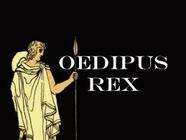 The Story of Oedipus is an extremely sad one. It is also very disturbing. The great hero Oedipus, who defeated the Sphinx and its riddles, ended up in a position that lead almost everyone who knew him to turn against him. If anyone was to give an example of what a tragic story looks like, Oedipus Rex would be the perfect story to mention. It is a complete tragedy that Oedipus did something so awful and yet he had no control over it. In the beginning of the story, pages 4 through 6, the priest of Zeus is explaining to Oedipus everything that is going wrong in Thebes, hoping maybe he could do something about it. During this time, the citizens of Thebes thought of Oedipus as a hero and they completely trusted him. As the story goes on, however, the people of Thebes begin to lose their trust in Oedipus and begin to despise him. When they found out that their hero had married his own mother and with her had four children, they turned against him without any hesitation whatsoever. On page 75, they even sad they wished they had never known him. Something really sad about this tale is that almost none of the citizens show any sympathy towards Oedipus for what had happened to him. They did not even think about how Oedipus did not do what he did on purpose, and they treated him like he did do it on purpose. They just turned against him, even after the fact that they had looked up to him before.This particular example of tragedy shows how someone can be up high on a pedestal and then fall in the blink of an eye. 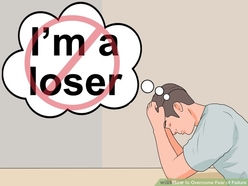 In all tragic literature, there is a failure of some sort. "Tragic art was an art form devoted to tracing how people fail." (A Kinder, Gentler Philosophy of Success, Alain de Botton) Looking back at tragedies from centuries ago, there is always a failure involved. Normally people might think tragedy is only a story leaving the audience feeling extremely sad and unhappy, but really there is more to tragedy than that. What tragedy is really doing, besides devastating the audience, is showing how people fail and how they deal with their failure. In all tragic literature, there is some kind of flaw that leads the to the fall of the principle character. In today's society, we are afraid of tragic failures. We are afraid that we will fail and be judged harshly by others. Sometimes tragic events do occur. Something happens and someone "fails" at something. However, according to Alain de Botton, that is completely normal. It is impossible for someone to be able to be successful with everything. There will always be mess ups, or failures. In that case, tragedy is everywhere. If tragedy is based on how people fail, then it is literally impossible to avoid tragedy. It is found not only purposefully in novels and films, but it is also found not on purpose in real life. People have a deep fear of tragedy. It is interesting to watch a tragic movie, or read a tragic book, but it would not be fun to have to deal with a tragic event in real life. People do not want to fail and then be judged. In today's society, people are afraid of being considered "losers". When someone goes through a tragic event, they lose something. However, that does not necessarily make them "losers". People still do not want to lose things, though, in fear of being judged. 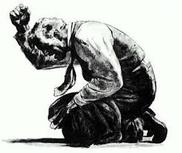 So who has to deal with tragedy usually? Well there are many people who assume that tragedy is an event usually found around kings, or people high up on the social latter. However, that is not always the case. According to Tragedy and The Common Man, by Arthur Miller, common men are just as likely to face tragic events, the reason being that the common man understands fear better than those high up on the social latter. "The quality in such plays that does shake us, however, derives from the underlying fear of being displaced, the disaster inherent in being torn away from our chosen image of what and who we are in this world. Among us today this fear is strong, and perhaps stronger, than it ever was. In fact, it is the common man who knows this fear best. (Miller) Common man are more familiar with this fear because they are afraid of losing their place in society. They work hard to keep a certain image in this world, and they do not want to lose that. People who are socially ranked above the common man don't necessarily have that same fear of losing their place in society. They are just naturally at the top, usually with no fear of falling. Those fears that follow the uncommon man allow tragedy to become more likely to occur. Therefore it is more likely for tragedy to be among the common man.It is definitely common in the modern common man, because the men who are not already up high on the social latter especially don't want to lose their place in society. 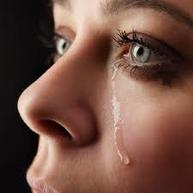 Tragedy is everywhere. In books, movies, and sometimes even in real life. Tragedy is when something truly terrible happens to people and they are left only to feel sadness. Not everyone has a tragic event take place in their life. That is why reading a tragic novel, or seeing a tragic play or movie can be so interesting. The audience who have not felt the emotions that facing a tragedy would give them would basically get a preview of those emotions. “Tragedy (from the Greek: τραγῳδία, tragōidia[a]) is a form of drama based on human suffering that invokes an accompanying catharsis or pleasure in audiences"( Tragedy, Wikipedia Foundation). Its's weird how people enjoy books and movies that include people suffering. It gives them a chance to experience a lesser version of the harsh emotions real life tragedy would give them, without having to actually go through a devastating event. I suppose that could be why they enjoy reading about tragedy. Some might say that the goal of tragedy is catharsis, which provides relief to the audience from any strong or repressed emotions. Revenge tragedy could also provide some relief to someone who is seeking revenge on someone.The revenge tragedy, or revenge play, is a dramatic genre in which the protagonist seeks revenge for an imagined or actual injury. Although they might not get their revenge on the person they want revenge on, they could witness someone else getting revenge. That might provide some satisfaction to those who are out seeking revenge. Reading tragic novels and seeing tragic movies or plays allows us to experience different things without actually going through them in real life. |
AuthorWrite something about yourself. No need to be fancy, just an overview. ArchivesCategories |
 RSS Feed
RSS Feed
